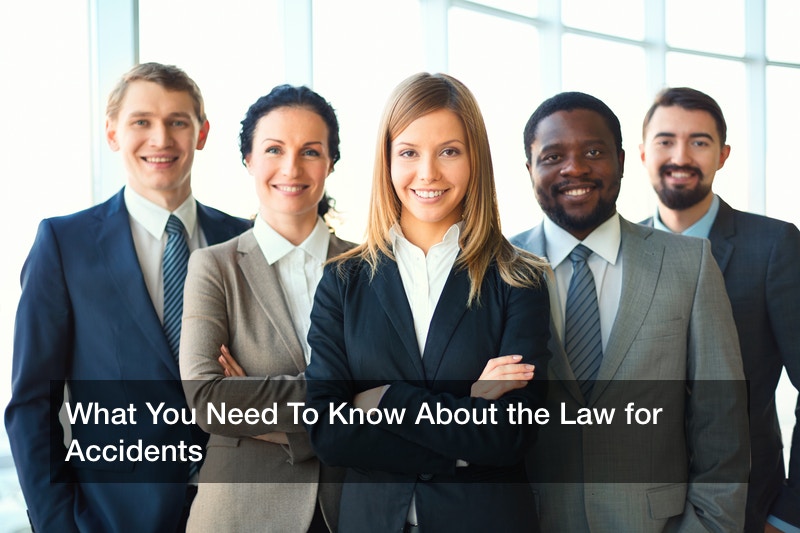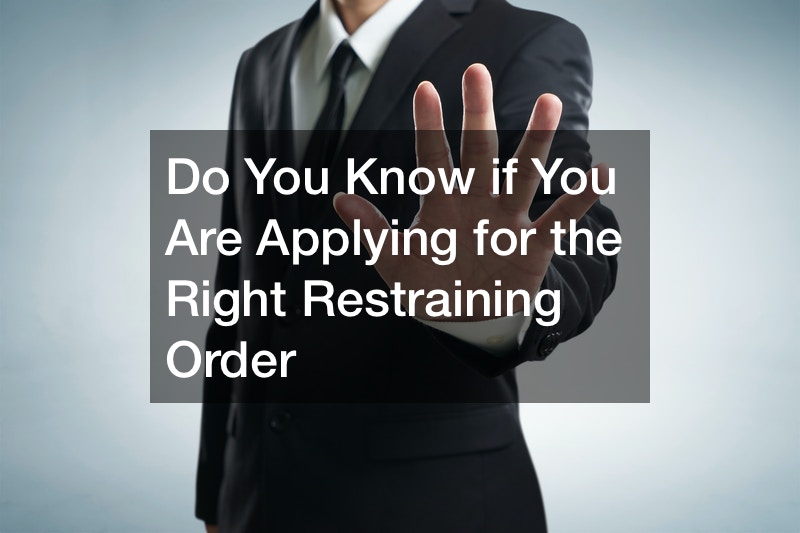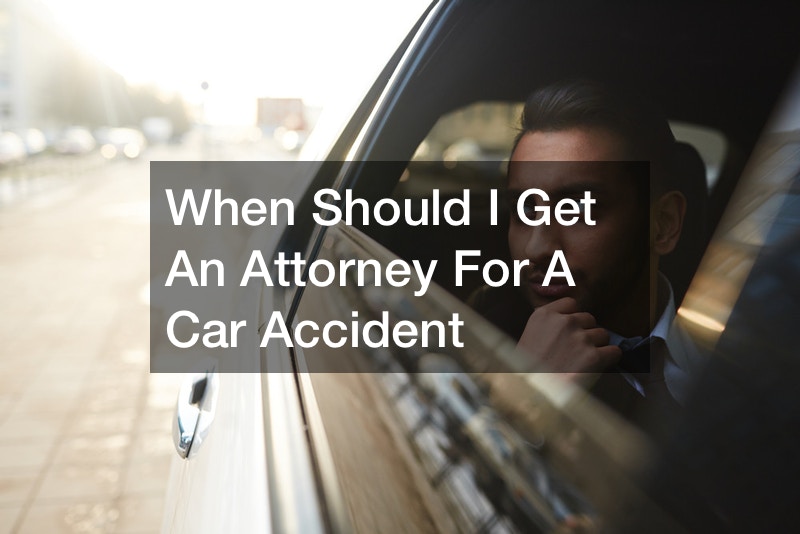
Getting in a car accident is stressful enough, even without having to deal with the legal side. This is especially true if you are wholly unfamiliar with the law for accidents. This part of the law is comprised of all the legal rules that determine who is responsible for all the personal and property damage caused by a traffic collision. The law for accidents includes the legal principle of negligence, most commonly referred to in personal injury cases.
Negligence also applies to car accident ligation, which is usually handled at the state level. Case in point, the law for accidents can become extremely complex, especially when dealing with insurance companies across state lines. To help you deal with your case, you will likely need an auto accident attorney. For everything else, here is what you need to know about the law for accidents.
How Does The Law For Accidents Work?

While there is a lot of detail and nuance involved in the law for accidents, in most states, it is based around the same four basic principles. These principles are duty, breach, causation, and harm. In short, a victim of a car accident must prove that these four elements were in play to receive compensation.
- Duty: This element refers to the legal obligation that drivers have while on the road. They must abide by traffic laws and operate their vehicle in a safe and sensible manner. This includes obeying traffic signs, using headlights and turn signals, driving at a safe speed, maintaining control of the vehicle, exercising awareness, and obeying any other state traffic laws or expectations that may exist. During a car accident case involving negligence, an experienced accident injury attorney can usually make the argument for the existence of duty fairly easily.
- Breach: After the argument is made that the defendant had a duty to operate their vehicle in a certain manner, the plaintiff will offer evidence arguing that the defendant breached his or her duty. A breach can be argued with traffic surveillance footage if available, through direct evidence like testimony from an eye witness, or through an admission of fault. Sometimes the plaintiff will have to resort to circumstantial evidence, like paint smudges on the vehicle, skid marks on the road, or a blood alcohol reading.
- Causation: After it is proven in a court of law that the defendant had a duty to operate their vehicle in a certain manner and that they breached that duty, the plaintiff must prove that those circumstances are what directly led to their injuries. This is referred to as causation. The court will not assume just because the defendant had a duty and they breached it, that this is what caused the plaintiff’s injuries. For a car accident case, causation is usually proven through medical testimony that demonstrates the injuries sustained by the plaintiff did not exist before the crash and that they coincide with the type of accident.
- Harm: The last element of proving negligence in a court of law is harm. No matter how careless another driver may have been, a plaintiff will not have a negligence case against them unless they can prove that the defendant’s conduct behind the wheel directly caused harm to the plaintiff’s person or their vehicle. After the element of harm is demonstrated in court, the plaintiff could be entitled to compensation for lost wages, medical bills, or any pain and suffering they may have experienced as a result of the accident.
What To Do Immediately After a Car Accident

The most important thing you can do after a car accident is to remain silent and not incriminate yourself. The most common mistake made regarding the law for accidents is admitting fault to the other driver. In a court of law, statements that are made off the record or out of the courtroom, also known as hearsay, are not usually admissible to the courtroom. However, admissions are an exception. Something as simple and innocent as an apology after a car accident can be misconstrued as an admission of guilt and used against you in a court of law.
On the other hand, after an accident, it is also important to take note of any comments or statements made by the other driver. You can use your cell phone or note pad to take notes during the ensuing chaos of a car accident. The goal is to gather as much information and detail regarding the circumstances of the accident. To start, record the name, address, license plate number, contact information, and insurance information of the other driver. If you are unsure about any of this information, you can contact the car dealership or truck dealer where the vehicle was purchased. If a motorcycle was involved, contact the motorcycle dealer. They may be able to supply information regarding the exact make or model.
Other evidence at the scene that you will want to preserve includes the road, traffic, and weather conditions. Immediately take photos of the road and the vehicles involved with your cell phone camera to preserve this evidence after the accident. Include traffic signs, crosswalks, etc. Do not forget to call the police and record their names to make getting a copy of their report easier later on.
If you require medical attention after the accident, seek it immediately, Do not wait. Oftentimes, a car accident can cause whiplash which the victim may not notice right away. The symptoms, such as neck pain, stiffness, and headaches, may set in later and become more pronounced as time goes on. If you do not seek treatment immediately, the defendant’s attorney may attempt to minimize the seriousness of these injuries based on the fact that you waited to get medical attention.
Perhaps the most important step you can take after a car accident to increase your chances of receiving compensation is to contact a personal injury lawyer. Without legal assistance, you will not be able to understand the minutiae of the law for accidents and willbe vulnerable to the deceptive tactics used by the opposing side or their insurance company. You may be pressured into waiving certain rights or accepting an unfair settlement. There are currently 1,315,561 lawyers in the United States. Before settling any agreements or providing your signature, contact a personal injury law firm and consult a lawyer.
Common Car Accident Legal Mistakes

Another important thing to know about the law for accidents is common mistakes that are made. After a car accident, the victim often panics and makes an array of mistakes at the scene. Some of these mistakes are easily corrected, but some will have lasting consequences. Along with not immediately preserving evidence, seeking medical attention, or contacting the appropriate lawyer for your case, such as a motorcycle accident injury attorney for a motorcycle accident, there are a few other common car accident legal mistakes you will want to avoid diligently.
Not Providing Open Access To Records
Once you have hired an attorney, it is important to be completely transparent and provide open access to past records. If you fail to disclose or attempt to hide past injuries or accidents from your attorney, they will not be able to do their job effectively and provide you the best possible representation. In a worst case scenario, opposing counsel may find out about your past accidents or injuries and bring them up during negotiation or in court to attempt to discredit your current case.
Failing to disclose an injury might also cause issues with your insurance company, since they may claim your recent injuries are actually pre-existing injuries from your last incident. If this happens, your insurance company may request open access to your medical history. Do not agree to this or sign anything before you have consulted with your attorney.
Another common mistake victims make regarding the law for accidents is to exaggerate their injuries or restrictions. If a victim does this, their claim will have a high chance of failing if opposing counsel captures evidence, such as video or photos, of the victim performing activities they claim they are incapable of performing. Sometimes, an insurance company or workers compensation lawyer will hire a private detective to conduct this surveillance for them. This is completely ethical and legal.
Car Insurance Law

A common mistake that is sometimes made before a car accident even occurs is not having car insurance, or not having adequate coverage. Determining whether or not you have adequate car insurance coverage can be a complicated task, as car insurance policies can be unnecessarily confusing.
Oftentimes, the importance of car insurance is only revealed after an unfortunate accident occurs, so you do not want to find yourself without it. Although, depending on a few various factors, car insurance can be quite expensive, as well as confusing. Despite these factors, car insurance is mandatory almost everywhere in the United States. Laws regarding car insurance are all decided and enforced by each individual state. In fact, 49 of the 50 states in the United States require every driver to have an active car insurance policy. The only state in America in which you are not legally required to have an active car insurance policy is New Hampshire. In this state, however, drivers are required to have and show proof of financial responsibility and are still responsible for any damage they may cause. Therefore, many drivers in the state of New Hampshire still make the wise investment of car insurance.
Laws regarding car insurance can vary drastically from state to state, so you should look into the laws in place in your state of residence. You can check with your state’s Department of Motor Vehicles to find out what minimum liability coverage is required by law.
The amount of comprehensive insurance coverage required by law also varies from state to state. For instance, no fault states require drivers to have a higher level of coverage. A state that is “no fault” means that a driver’s insurance covers their own damages and injuries rather than the at fault driver’s insurance company paying out to the other driver. After every car accident in a no fault state, each driver must file a bodily injury claim with their insurance company. This in turn raises the cost of insurance.
In a no fault state, you are also required to have personal injury protection, along with property damage and bodily injury coverage. Personal injury protection coverage will take care of your medical bills in the event of an accident, along with any other passengers in the car. The amount of personal injury protection coverage required by law also varies from state to state. Property damages include damage done to your vehicle or home, such as garage door repairs.
While the law may vary from state to state, if you do not have car insurance and are involved in a car accident, the good news is you likely still have a case to pursue. For someone who has car insurance and is involved in a car accident, the other party owes you compensation for property damages, medical bills, lost wages, and any pain and suffering experienced as a result of the accident. If an individual is involved in a car accident and does not have car insurance, they are still entitled to receive compensation for property damages, medical bills, and lost wages, but not for any pain and suffering.
There are, however, a few exceptions to this law. If you do not have car insurance and are in an accident, you may be entitled to compensation for pain and suffering if you were just a passenger, if you were driving an employer’s car that was uninsured, if you borrowed someone else’s car that was uninsured, if the accident was caused by another driver who was intoxicated, if the accident results in wrongful death, or if the accident occurred on private property. If these exceptions do not apply to your situation, an experienced personal injury lawyer will still be able to get you the compensation you deserve. If your accident involved a truck, semi truck, tractor trailer, or motorcycle, contact an attorney with more specialized knowledge and skill set, such as a trucking accident lawyer or a motorcycle accident injury attorney.
If you keep this information about the law for accidents in mind, you will greatly increase your chances of receiving the compensation you deserve. Avoid the mistakes commonly made in the aftermath of an accident and immediately preserve evidence, seek medical attention, and contact a lawyer. An experienced car accident attorney will help you, and make the other side pay.



